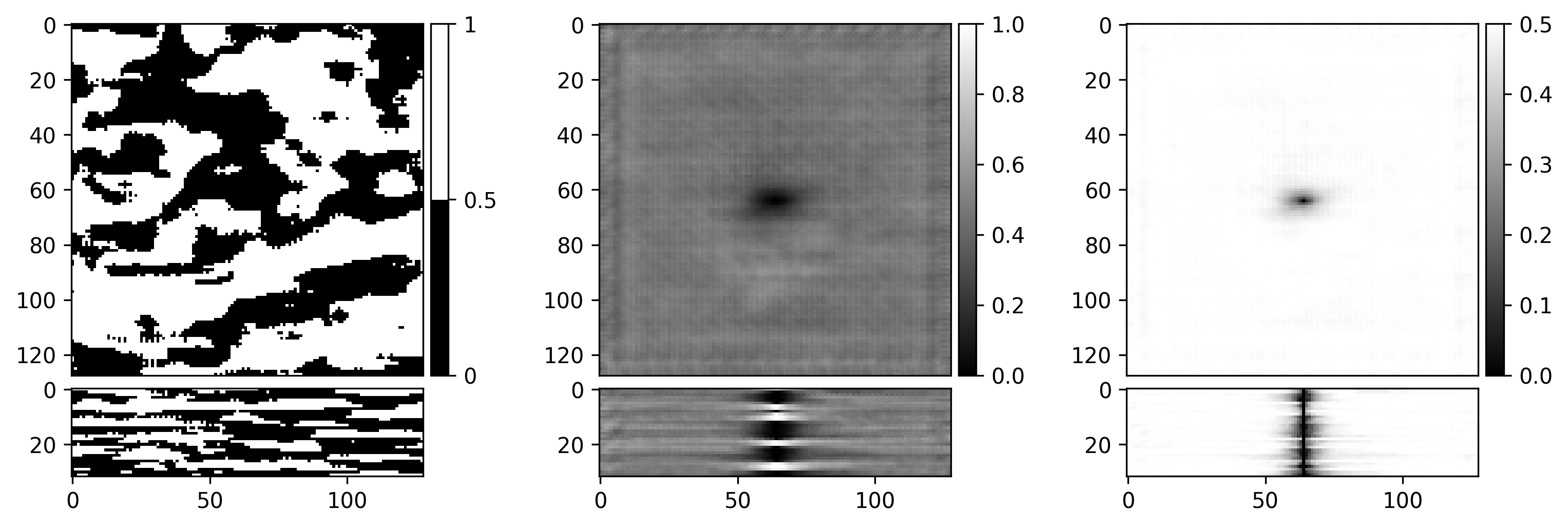GeoGAN: Conditioning of three-dimensional generative adversarial networks for pore and reservoir-scale models
Authors: Lukas Mosser,
Olivier Dubrule,
Martin J. Blunt
Department of Earth Science and Engineering, Imperial College London
This is the code repository accompanying the publication:
Conditioning of three-dimensional generative adversarial networks for pore and reservoir-scale models
[ArXiv]
We provide two pre-trained GAN models. The first one is trained on the Ketton limestone training image presented here.
If you decide to use this dataset for your own work, please consider citing the following works:
Stochastic reconstruction of an oolitic limestone by generative adversarial networks[ArXiv]
Dynamic reservoir-condition microtomography of reactive transport in complex carbonates[Article]
Due to their size we provide the necessary files via a Google Drive
The figure above shows two samples (b/c) obtained by a conditioning a generative adversarial network to three-orthogonal cross-sections of the Ketton training image(a).
Due to the stochastic nature of the optimization procedure the resulting images have distinctly different features away from the conditioning data.
We have trained a generative adversarial network on the Maules Creek alluvial aquifer training image.
The required model checkpoints are included in this repository.
If you choose to use the Maules Creek training image, please consider citing their originators at trainingimages.org
We have conditioned 1024 realizations of the Maules Creek alluvial aquifer model and present mean and standard deviation maps of the resulting ensemble.
The resulting images show that each realization honors the data at the well exactly and an ellipsoidal region of influence can be observed.
The conditioning tool is based on the following libraries:
We recommend using the anaconda distribution to install the required dependencies.
Currently the code has limited object oriented design and is usable as demonstrated by the accompanying jupyter notebooks.
We welcome contributions and suggestions for the improvement and development of the tool.
We recommend at least 16 GB of RAM and a modern CUDA capable NVIDIA graphics processor.
All experiments apart from network training have been performed on an NVIDIA 960M.
Training of the generative networks was performed on 8xNVIDIA K40 GPUs.
The software is provided as is.
If you have any questions please feel free to contact us via [email] or [twitter].

